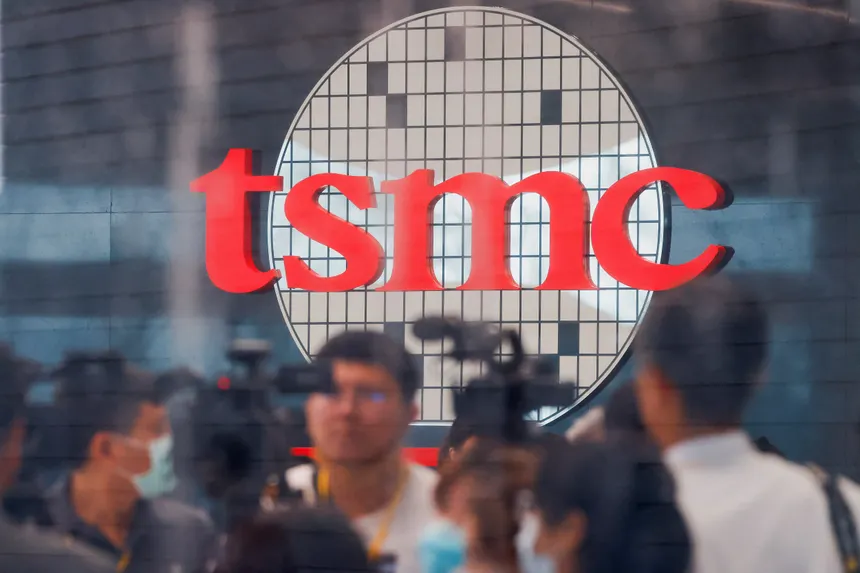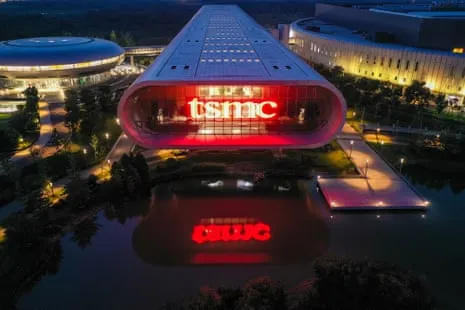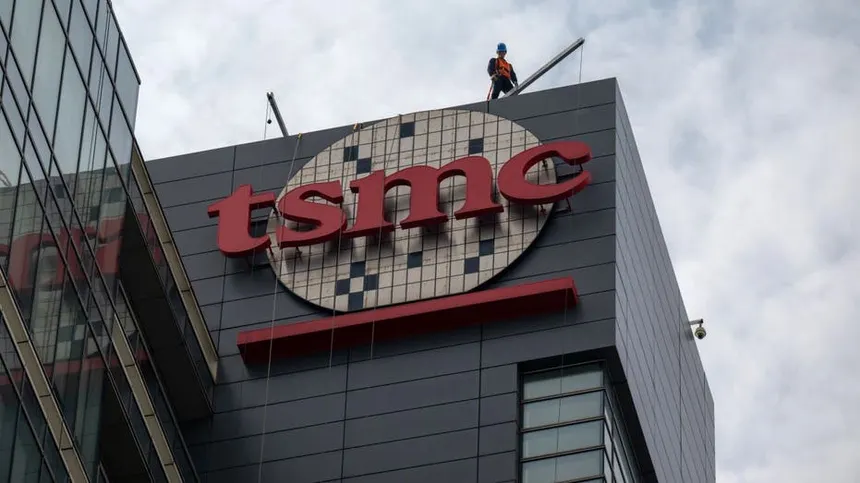A Historic Investment in U.S. Chip Manufacturing
The Taiwan Semiconductor Manufacturing Company (TSMC), the world’s leading chip manufacturer, has announced an unprecedented $100 billion investment in semiconductor production in the United States. This move is seen as a game-changer in the global technology industry and a crucial step in reducing reliance on Asian chip production.

Why This Investment Matters?
- Global Chip Shortage: The investment comes amid a global semiconductor shortage that has impacted industries from automobiles to consumer electronics.
- U.S. Tech Leadership: The move aligns with U.S. efforts to strengthen domestic semiconductor production and reduce dependence on Taiwan and China.
- Economic Boost: This investment is expected to create thousands of jobs and drive innovation in the American technology sector.
TSMC’s Investment Plans in the U.S.
TSMC’s investment will be distributed over the next decade and will focus on:
1. Expanding U.S. Chip Manufacturing Facilities
- Arizona Plant Expansion: The company is building a massive semiconductor manufacturing plant in Phoenix, Arizona. This plant, worth $40 billion, is set to produce advanced 3nm and 5nm chips.
- Additional Fabrication Facilities: Reports suggest that TSMC is planning additional chip fabrication plants in the U.S. to further increase production capacity.
- Advanced Packaging Technologies: The investment will also support advanced packaging methods to enhance chip performance and energy efficiency.
2. Strengthening Supply Chain and Infrastructure
- Supply Chain Localization: TSMC aims to establish a local supply chain to minimize disruptions and ensure steady production.
- Collaboration with U.S. Suppliers: The company is working closely with American material and equipment suppliers to strengthen the semiconductor ecosystem.
- Improved Logistics and Transportation: Efforts are being made to streamline the logistics network for faster chip production and delivery.

3. Research & Development (R&D) Investments
- Cutting-Edge Technologies: A significant portion of the investment will go towards research in AI-driven chip development and quantum computing.
- Collaboration with U.S. Universities: TSMC plans to partner with leading universities to train the next generation of semiconductor engineers.
- Sustainable Manufacturing Practices: A focus on eco-friendly chip production techniques to reduce environmental impact.
The Impact on the U.S. and Global Tech Industry
1. Boosting the U.S. Economy
- Job Creation: The investment is expected to generate thousands of high-paying jobs for engineers, technicians, and researchers.
- Increased Manufacturing Capacity: The expansion will enhance the U.S.’s ability to produce high-performance chips domestically.
- Economic Growth: Strengthening semiconductor manufacturing in the U.S. will attract further investments from tech giants like Apple, Nvidia, and AMD.
2. Strengthening U.S. National Security
- Reducing Dependence on Asia: Currently, over 90% of the world’s advanced chips are produced in Taiwan, making the U.S. vulnerable to supply chain disruptions.
- Geopolitical Stability: The investment reduces risks associated with tensions between China and Taiwan.
- Military and Defense Applications: Advanced semiconductors are crucial for U.S. defense technologies, AI systems, and cybersecurity.
3. Competition with China and Other Chipmakers
- U.S. vs. China in Chip Wars: China has been aggressively expanding its semiconductor industry. TSMC’s move strengthens the U.S.’s position in this tech battle.
- Competition with Intel and Samsung: Intel and Samsung, key competitors of TSMC, have also announced massive investments in chipmaking, fueling the race for semiconductor dominance.
- Global Technological Leadership: With this investment, the U.S. is set to become a major player in semiconductor innovation and production.

Challenges and Potential Roadblocks
1. High Costs and Implementation Challenges
- Construction and Equipment Costs: Building cutting-edge chip plants requires billions in infrastructure and equipment.
- Skilled Workforce Shortage: The U.S. faces a shortage of skilled semiconductor engineers and technicians.
- Regulatory Approvals: The investment may face bureaucratic hurdles and environmental regulations.
2. Competition and Market Uncertainty
- Global Semiconductor Market Volatility: Demand for chips fluctuates based on market conditions and economic trends.
- Competing Incentives: Other nations, including China and the European Union, are offering massive incentives to attract semiconductor investments.
- Supply Chain Challenges: Disruptions in raw material supply could impact manufacturing timelines.
Conclusion: A New Era for U.S. Semiconductor Industry
TSMC’s $100 billion investment marks a turning point for the U.S. semiconductor industry. It will not only boost American manufacturing but also reshape global chip supply chains. While challenges remain, the long-term benefits of this investment could redefine technological leadership for decades to come. The U.S. is now set to become a powerhouse in chip production, driving innovation and strengthening national security in an increasingly digital world.
Do Follow USA Glory For More Updates.






